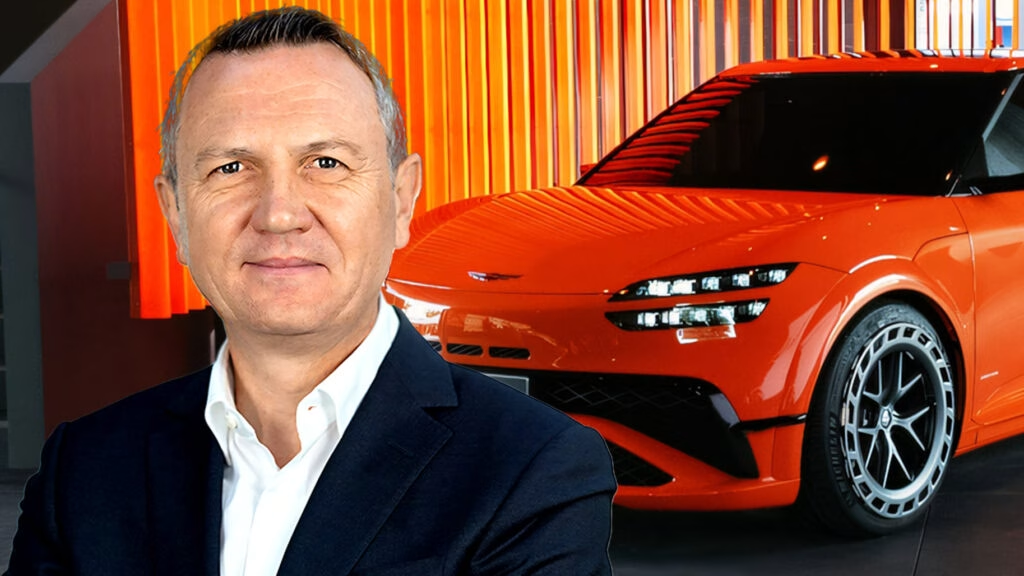Why Did Genesis Bring in a BMW Veteran to Lead Its European Ambitions?
Genesis is making bold moves in the European luxury car market, and its latest play is a head-turner: the appointment of Peter Kronschnabl, a seasoned BMW executive, as Managing Director of Genesis Motor Europe. If you’re wondering why this matters, let’s break it down. Kronschnabl isn’t just any industry veteran—he’s spent years steering BMW’s business in emerging markets, building brand presence where German engineering is practically a religion. His knack for understanding what makes European buyers tick could be the missing piece Genesis needs to shake up the status quo.
The timing is no coincidence. Genesis has been eyeing Europe’s premium segment, where brands like BMW, Mercedes-Benz, and Audi have long reigned supreme. By tapping Kronschnabl, Genesis signals it’s not just dabbling—it’s going all-in. According to industry analysts, leadership with deep European roots is crucial for any newcomer aiming to build trust and credibility in this discerning market. Kronschnabl’s experience at BMW, especially in market development and special sales, gives Genesis a fighting chance to tailor its approach for European tastes, regulations, and expectations.
What’s Driving Genesis’ Rapid Expansion Across Europe?
Genesis isn’t tiptoeing into Europe—it’s charging in. The brand already has a foothold in the UK, Germany, and Switzerland, but now it’s expanding into Spain, France, Italy, and the Netherlands. That’s a big leap, and it’s not just about putting more cars on the road. Genesis is betting that European drivers are ready for something different: a luxury experience rooted in Korean design, technology, and hospitality.
Why now? The European car market is in flux. Electric vehicles are gaining ground, traditional loyalties are shifting, and younger buyers are more open to new brands. Genesis sees an opening. Its strategy is to offer a blend of premium quality, distinctive design, and customer-centric service—think home delivery, transparent pricing, and long warranties. These aren’t just perks; they’re ways to stand out in a crowded field.
Real-world example: In Germany, where Genesis launched in 2021, the brand has already won praise for its personalized approach. According to a 2023 J.D. Power study, customer satisfaction with new entrants like Genesis is on the rise, especially among buyers seeking alternatives to the usual suspects.
How Will Genesis Compete With Established German Luxury Brands?
Let’s be honest: taking on the likes of BMW and Mercedes-Benz in their own backyard is no small feat. But Genesis isn’t trying to out-German the Germans. Instead, it’s leaning into its Korean heritage, offering a fresh take on luxury that emphasizes design, technology, and value.
One big differentiator is the brand’s all-electric and hybrid lineup. Genesis is investing heavily in electrification, with plans to launch both traditional hybrids and range-extended EVs. The upcoming Magma division, for example, will introduce high-performance models starting with a special version of the all-electric GV60. This isn’t just about horsepower—it’s about redefining what luxury performance can look and feel like in the electric era.
Genesis is also embracing motorsport, launching the Magma Racing program to build excitement and credibility among enthusiasts. It’s a smart move: motorsport success has long been a shortcut to brand prestige in Europe.
Are Hybrids and Range-Extended EVs the Secret Weapon?
Europe’s strict emissions regulations and growing appetite for electrified vehicles make hybrids and range-extended EVs a savvy play. Genesis is developing both, with the first extended-range electric vehicle (EREV) expected to be a specially-equipped version of the GV70. Why does this matter? EREVs offer the flexibility of electric driving with the reassurance of a backup combustion engine—a combination that appeals to buyers wary of range anxiety.
Recent data from the European Automobile Manufacturers Association (ACEA) shows that hybrid and plug-in hybrid sales have surged by over 30% year-on-year in key markets like France and Italy. Genesis is clearly reading the room, positioning itself to capture buyers who want the benefits of electrification without the compromises.
What Sets Genesis Apart in the Eyes of European Buyers?
It’s not just about the cars. Genesis is betting that its unique blend of Korean design, customer-first service, and tech-forward features will resonate with European drivers. The brand’s approach to customer experience—think seamless online sales, at-home test drives, and transparent pricing—feels refreshingly different in a market where buying a luxury car can still be an old-school ordeal.
Design is another ace up Genesis’s sleeve. The brand’s models have won multiple international design awards, and their interiors are often compared favorably to far pricier competitors. For buyers who crave something distinctive, Genesis offers an alternative to the familiar silhouettes of German sedans and SUVs.
The Big Takeaway? Genesis’s European push isn’t about perfection—it’s about smarter adjustments. With a BMW veteran at the helm, a growing lineup of electrified models, and a customer experience that dares to be different, Genesis is rewriting the playbook. Start watching for those bold new badges on European streets this year, and you’ll likely spot the difference by month’s end.

